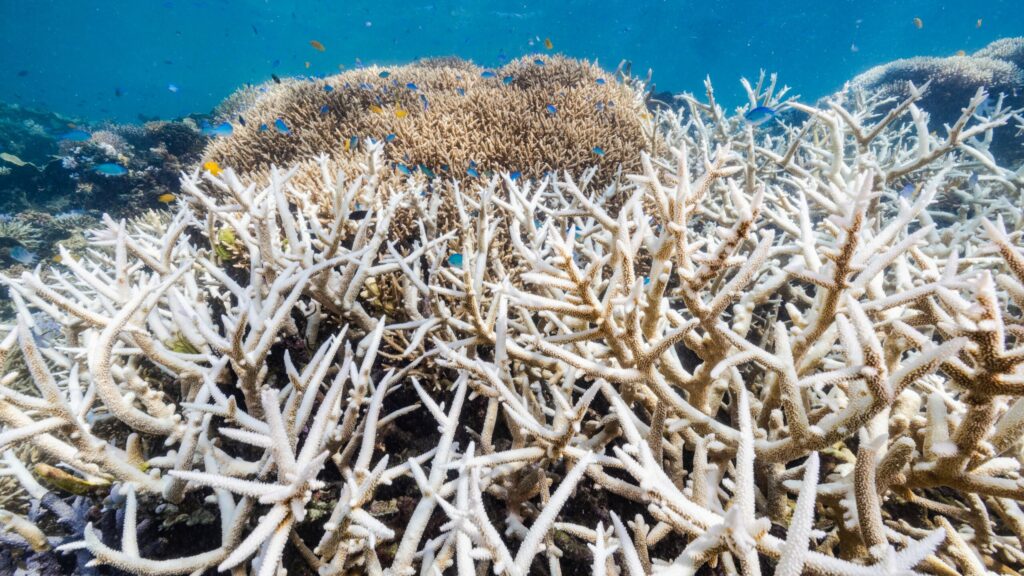Coral scientist questions Barrier Reef mass bleaching report delay
Richard Dinnen - Queensland Editor |

Pic: Coral bleaching at Stanley Reef, south-east of Townsville, in March 2022. Photo by Harriet Spark
One of Australia’s leading coral reef scientists says it’s unfortunate a report on the latest Great Barrier Reef mass bleaching has not yet been released.
SBS News said severe, widespread mass coral bleaching was detected in March, but there’s still no sign of a report of the event that was due out in April.
The delay raised questions of political interference to keep the Great Barrier Reef Marine Park Authority and Australian Institute of Marine Science report out of the Federal Election period.
The Federal Government and the report authors have denied that claim, but Selina Ward, from the University of Queensland, says the “unfortunate” delay is a “very large coincidence”.
Doctor Ward is the senior lecturer in the UQ School of Biological Sciences. She said the latest Reef data is available, and it’s very unusual for its release to take so long.
“With past bleaching events, we’ve always had those data available pretty quickly, generally within about ten days. It is really unusual for it to be delayed this long.
“A lot of us are waiting eagerly to see what those data are going to show us, to know how much coral has been lost. Why is it that we’re not going to hear them until after the election?”
Bleaching occurs when water is too warm, as coral expels algae from their tissues, turning completely white. Corals can survive a bleaching event but are under more stress and may die.
There have been six mass bleaching events on the Great Barrier Reef in the past twenty years, but never during a La Nina, which occurred in Australia during the 2021-22 summer.
Dr Ward said that was very disappointing.
“In a La Nina year, the water temperature doesn’t rise as much, and there’s less light because we have stormy weather, more rain, more cloud cover.
“To have a bleaching event in a La Nina year is quite awful. It’s happened because the temperature in La Nina years now is greater than it was in the past for El Nino years.
“Potentially now, every year is another year where we have to worry about having another bleaching event.”
Dr Ward said genuine action on climate change is urgently needed.
“Last year, a report came out that showed some recovery, which was absolutely expected in that time frame.
“The (Federal) Government used that in their arguments to UNESCO to suggest there was nothing wrong with the Reef.
“That sort of manipulation is not helpful. The only thing that’s really going to save the Reef in the longer term is to very dramatically cut emissions.”



